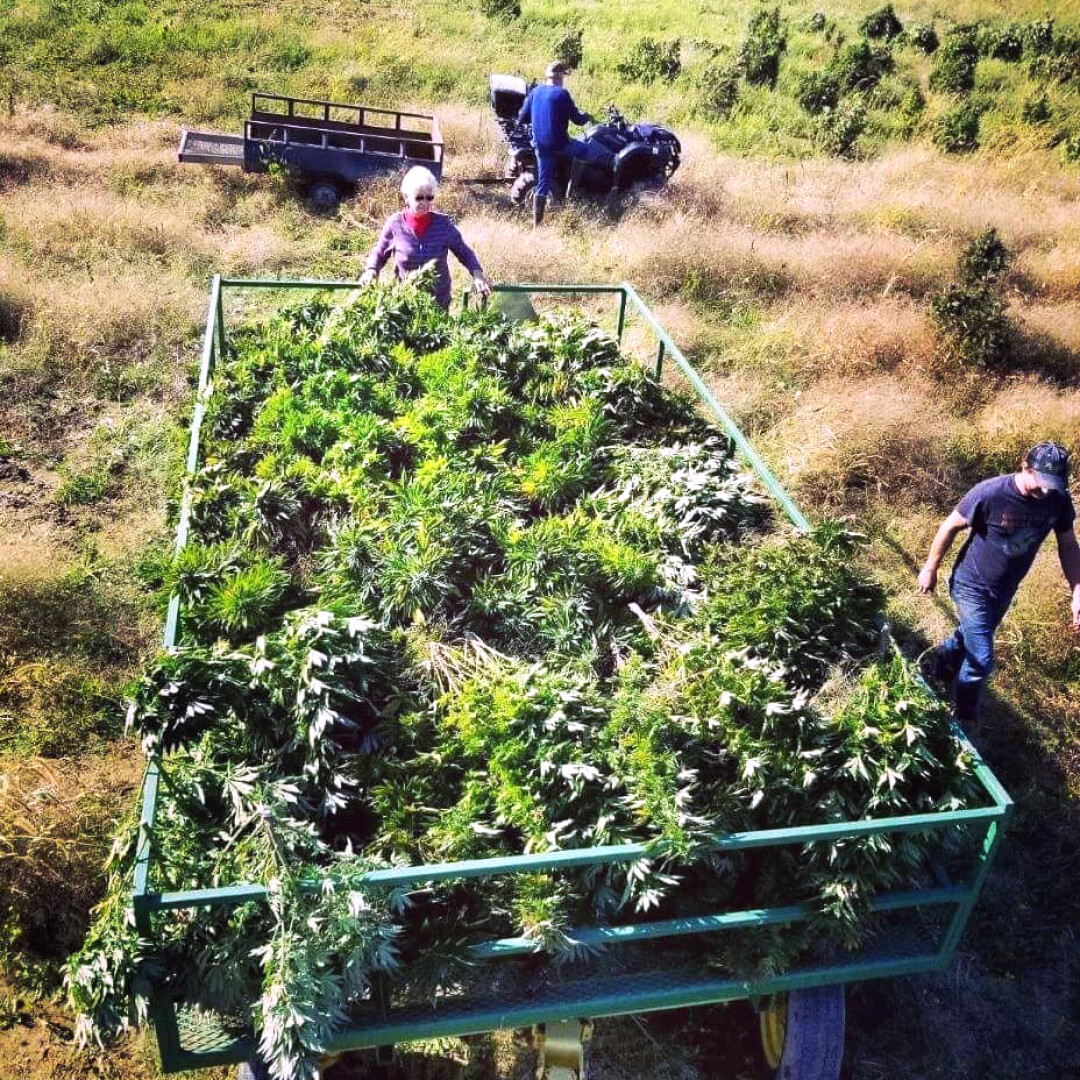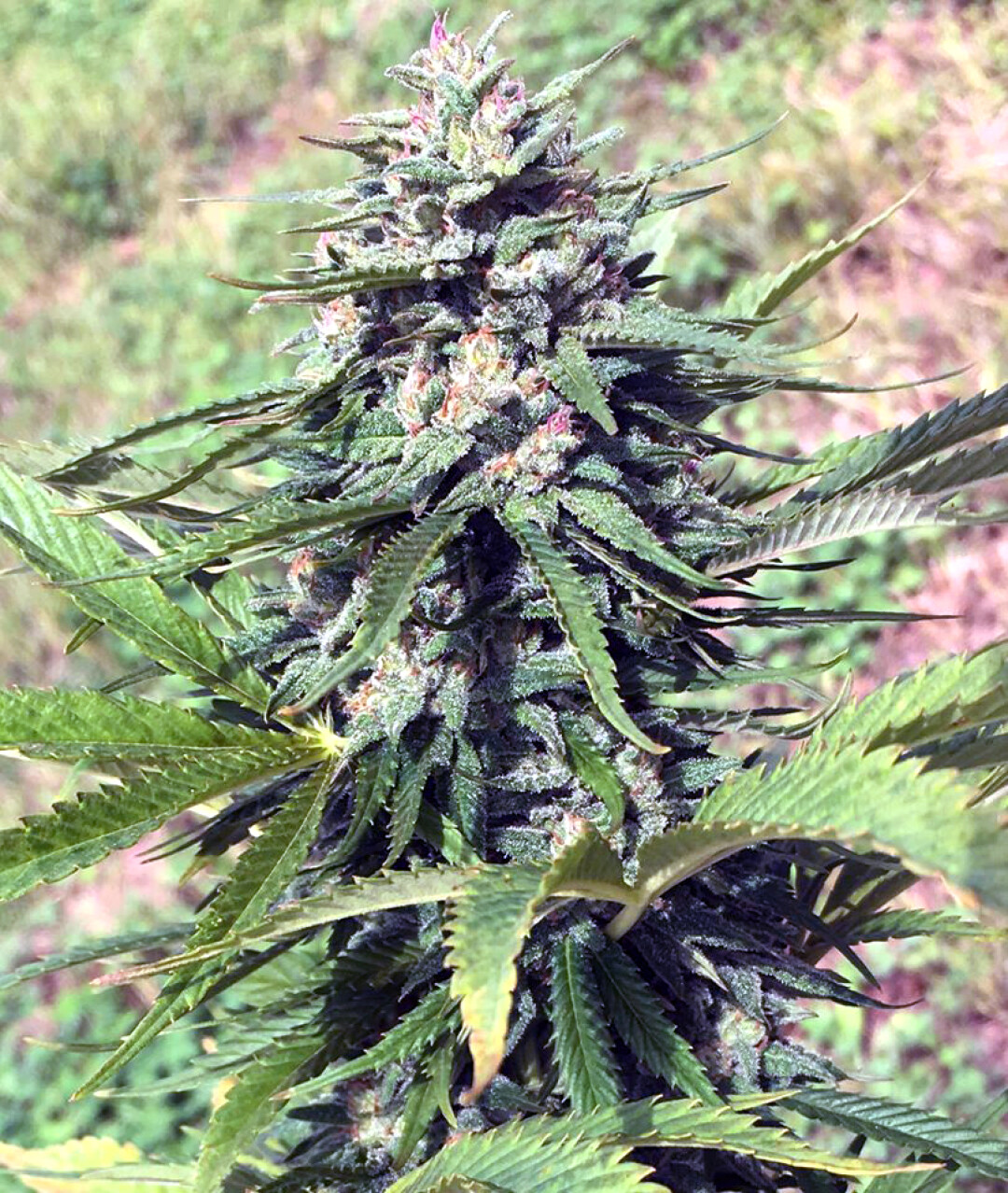Budding Industry: Cultivating hemp in the Chippewa Valley offers opportunities, pitfalls

Like the cannabis plant itself – which grows from a tiny seed to a Christmas-tree sized bush in just a few months – the cultivation of industrial hemp has exploded nationwide over the past two years.
Wisconsin, the pre-Prohibition king of industrial hemp, hasn’t been immune to the post-legalization boom: In 2018, 135 licensed industrial hemp growers planted a crop in the state, a number that ballooned to 850 last year. Likewise, the number of acres of hemp grown in Wisconsin expanded from 1,872 in 2018 to about 5,000 last year, many of them in the Chippewa Valley.
"We have been losing the value of what small farms offer our communities," said Allegra Schafer of Monarch Hill Hemp. "We finally have the chance to grow something of real value.”
Many farmers have been eager to get into the hemp business, largely because of a boom in the use of CBD, the non-psychoactive compound in hemp that users say helps them with inflammation, anxiety, and more. But experts and hemp growers themselves know that the promise of cannabis cultivation is tempered by the uncertainty that comes with any kind of agriculture, particularly one that is so new.
On a frigid evening in January, Dr. Heather Darby, an agronomic and soils specialist for the University of Vermont Extension, spoke to a roomful of farmers at session about industrial hemp at Sleep Inn & Suites outside Eau Claire.
“There’s definitely opportunities,” Darby said about the hemp boom. “But we have to remember that hemp really just became a legal crop.”
Nationwide, she said, half a million acres of industrial hemp were planted in 2019, about half of it grown without an identified market. “The markets and the industry itself is just really getting started,” she cautioned. “Our enthusiasm is way ahead of where everything else is that this point.”
Jerry Clark, UW Extension agriculture agent in Chippewa County, said local hemp farmers are raising the plant for CBD, rather than for seed, fiber, or other purposes. There isn’t yet a sufficient market for hemp fiber in the state, he said. However, one might develop: Last growing season, the Chippewa County Extension office grew a small test plot of industrial hemp as part of a UW-Madison research project.
Because the industry is so new and the plant requires lots of hands-on attention, hemp cultivation is very time-consuming, farmers say. “Growing quality CBD hemp is more like tending a vegetable garden than farming mass row crops or managing a hay field,” said Allegra Schafer, proprietor of Chippewa Valley-based Monarch Hill Hemp and Botanicals. Harvesting is a time-consuming physical job, and it takes hundreds of hours to hand-shuck and trim the plants, and additional time to dry them for storage, she said.
Monarch Hill grew its first crop of hemp last year, planting four varieties on several acres, and they hope to boost production to 5 acres in 2020. The business focuses on using organic methods and tending crops from start to finish.

Getting into hemp cultivation is costly: Seeds can cost $1 to $2 each. There are license and testing fees, expensive equipment, and volatile markets to deal with. Furthermore, Schafer said, large-scale processors seemed uninterested in working with small farmers, which led her business to process its own CBD oil, which Schafer says she uses herself for its many benefits, including joint pain relief, better sleep, and better mood.
Beyond its many uses – not only CBD but also producing clothing, animal feed, plastic, and fuel – Schafer sees the return of hemp as a boon to Wisconsin agriculture, which has seen hundreds of dairy farms vanish annually. “We want to keep our farm, too,” Schafer said. “The representatives of the state are finally allowing farmers to get back to growing hemp. They realize the small farms in the state are disappearing or are in serious trouble. We have been losing the value of what small farms offer our communities. … We finally have the chance to grow something of real value.”
Mike Hanson, CEO of operations for Everything Hemp LLC – which grew 5 acres of hemp last year near Glen Flora and also processes hemp for other growers – is optimistic about both his business and the industry in general. “I’m a big true believer in nature,” Hanson said. “I’m all about what comes out of that field, as little processing as possible into a high-quality carrier oil and into the body. That’s where I’ve found the best relief, personally.”
Everything Hemp has been selling its products online and through distributors and other retailers. “The marketing and advertising on this stuff has been tough,” Hanson said. “This is really a grassroots product right now.”
And even if Wisconsin were to legalize recreational marijuana, as some of its neighbors have, Hanson doesn’t think the CBD market will suffer. Even in states where recreational marijuana is legal, he said, the CBD market dwarfs the marijuana market. CBD users aren’t chasing a high; instead, in Hanson’s words, they are seeking relief from the “creaks and squeaks” that come with aging. Hanson said most of his customers are women aged 45 and older. “They’re not going to get up in the morning and take a high THC tincture when they’re got to get the kids out the door and go to work,” he said.

